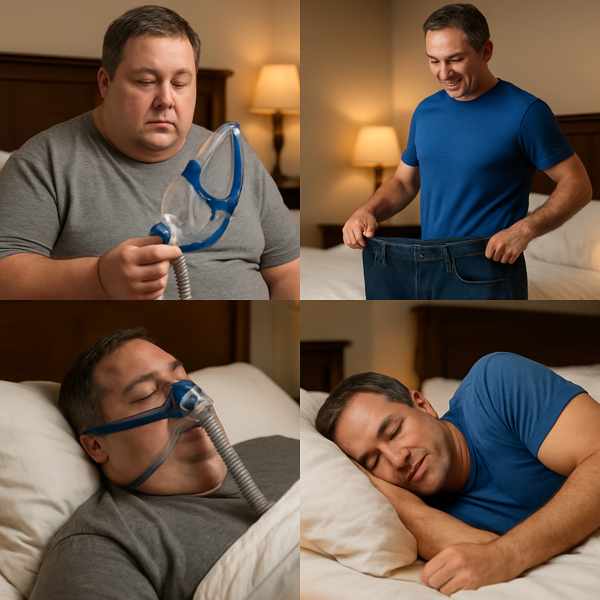Can Weight Loss Cure Sleep Apnea?

Many people with sleep apnea experience difficulty sleeping, loud snoring, and interrupted breathing patterns.
While not always a complete cure, weight loss often improves symptoms of sleep apnea significantly.
Understanding Sleep Apnea
The most common form is obstructive sleep apnea (OSA), caused by excess tissue in the throat.
Common symptoms include:
- Loud snoring
- Choking or gasping during sleep
- Excessive daytime tiredness
- Signs of disrupted oxygen flow
Why Excess Fat Matters
Carrying extra weight, especially around the neck and upper body, can put pressure on the airway during sleep.
Key risk factors include:
- More weight increases OSA risk
- Narrows the airway path
- Poor muscle tone in the throat
Is It Possible to Eliminate Symptoms Naturally?
Especially in individuals with mild to moderate OSA, lifestyle changes can be very effective.
Possible benefits of weight loss:
- Less airway obstruction
- Reduced risk of waking up during sleep
- Less need for CPAP machines or surgery
- Feel more rested and alert
However, weight loss may not cure sleep apnea in all cases — especially if anatomical issues or severe OSA are present.
Realistic Expectations
Even modest weight loss can have a big impact.
Tips:
- Start with small, achievable goals
- Sustainable changes make a difference
- Track your sleep changes
Natural Weight Loss Tips for Better Sleep
Effective strategies:
- Eat a balanced, whole-food diet
- Boosts metabolism and burns fat
- Sleep on your side
- Avoid alcohol and sedatives
Working with a nutritionist or sleep specialist can provide more personalized support.
When Weight Loss Isn't Enough
While weight loss is helpful, it may not fully resolve sleep here apnea for everyone.
- Keeps airways open at night
- Custom-fitted mouthpieces to reposition jaw and tongue
- Surgery in severe cases
Final Thoughts on Weight Loss and Sleep Apnea
So, can weight loss cure sleep apnea? In many cases, it can greatly reduce the condition.
Talk to your healthcare provider, make informed decisions, and take proactive steps toward better health and rest.